Book Summary and Analysis |
History, Philosophy, Politics and Society | Popular Psychology, Personal Growth and Self-Help
A Guide to
Robert Greene’s
The 48 Laws of Power
Summary and Analysis,
Key Ideas and Facts
by I.K. Mullins
Copyright©2015 I.K. Mullins. All Rights Reserved. No part of this book may be reproduced or retransmitted in any form or by any means without the written permission of the author.
Should you have any questions, please contact us at permissions@insightfulreader.com
PART I. A SUMMARY OF THE KEY IDEAS AND FACTS IN ROBERT GREENE’S THE 48 LAWS OF POWER
Law 25: Re-Create Yourself
According to Greene’s Twenty-Fifth Law of Power, do not accept the roles that other people and the society at large impose on you. Reinvent yourself by creating a new identity. Make sure that your new identity draws other people’s attention and does not bore them. Define your own image; do not let other people do that for you. When in public, use dramatic, even theatrical gestures and actions in order to increase your power.
***
Analysis and Comments on the Twenty-Fifth Law of Power
According to Greene, the Twenty-Fifth Law of Power can be applied in practice by using the following ideas:
- You can enlarge your actions through dramatic gestures that call for sympathy and other emotions.
- Place yourself at the center of other people’s attention, and do not allow others to upstage you. Always be aware of what pleases your audience and what bores your audience.
- You will be doomed when you accept the role that the world wants to impose on you. Your power will be limited by that role.
- Reshape your character into a character of power. Make sure that it is memorable.
* * *
The following ideas, facts and comments go beyond Greene’s book and provide additional insight into the Twenty-Fifth Law of Power:
Leo Tolstoy, a Russian writer, wrote, “Money is a new form of slavery, and distinguishable from the old simply by the fact that it is impersonal – that there is no human relation between master and slave.”
The world is controlled by money masters, those few people who control money. These money masters use various means to shape peoples’ mentality, beliefs, convictions, tastes and preferences. Media, educational systems and politicians serve the money masters’ interests, conditioning your mind.
In order to re-invent yourself and to be your true self, not what the money masters want you to be, you have to be aware of the higher layers of control in the world and separate what the money masters want you to think and be from who you really are. It is a very difficult task because the money masters condition human minds from a very young age, making people believe that ideas and beliefs imposed on them are their true inner ideas and beliefs.
***
Law 26: Keep your hands clean
According to Greene’s Twenty-Sixth Law of Power, you have to make sure that your image projects the idea of your civility and efficiency. Keep your hands clean by making other people do the dirty work for you, thus disguising your involvement.
***
Analysis and Comments on the Twenty-Sixth Law of Power
According to Greene, the Twenty-Sixth Law of Power can be applied in practice by using the following ideas:
- People’s reputation depends more on what they conceal, not what they reveal about themselves. Disguise your mistakes by using a scapegoat.
- Find a powerful third party with whom you share an enemy, then use the third party’s power to attack your enemy.
* * *
The following ideas, facts and comments go beyond Greene’s book and provide additional insight into the Twenty-Sixth Law of Power:
- Scapegoating is an aggressive technique that some people use in order to move blame and responsibility away from themselves and towards another person or group. The victim of scapegoating receives misdirected blame, criticism and punishment.
- When someone tries to use you as a scapegoat, you have to develop an understanding of what is going on at a deeper level.
Christopher Eric Hitchens, an English author and journalist, wrote,
I would not throw my numberless sins onto a scapegoat and expect them to pass from me; we rightly sneer at the barbaric societies that practice this unpleasantness in its literal form. There’s no moral value in the vicarious gesture anyway. As Thomas Paine pointed out, you may if you wish take on a another man’s debt, or even to take his place in prison. That would be self-sacrificing. But you may not assume his actual crimes as if they were your own; for one thing you did not commit them and might have died rather than do so; for another this impossible action would rob him of individual responsibility. So the whole apparatus of absolution and forgiveness strikes me as positively immoral, while the concept of revealed truth degrades the concept of free intelligence by purportedly relieving us of the hard task of working out the ethical principles for ourselves.
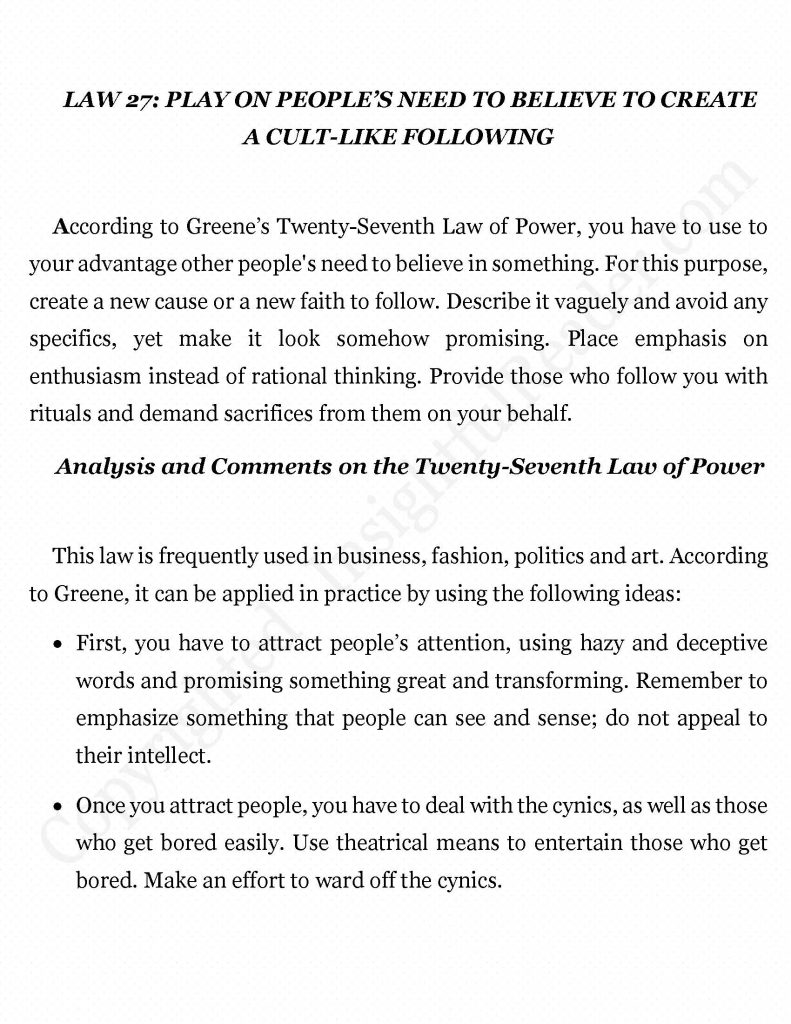
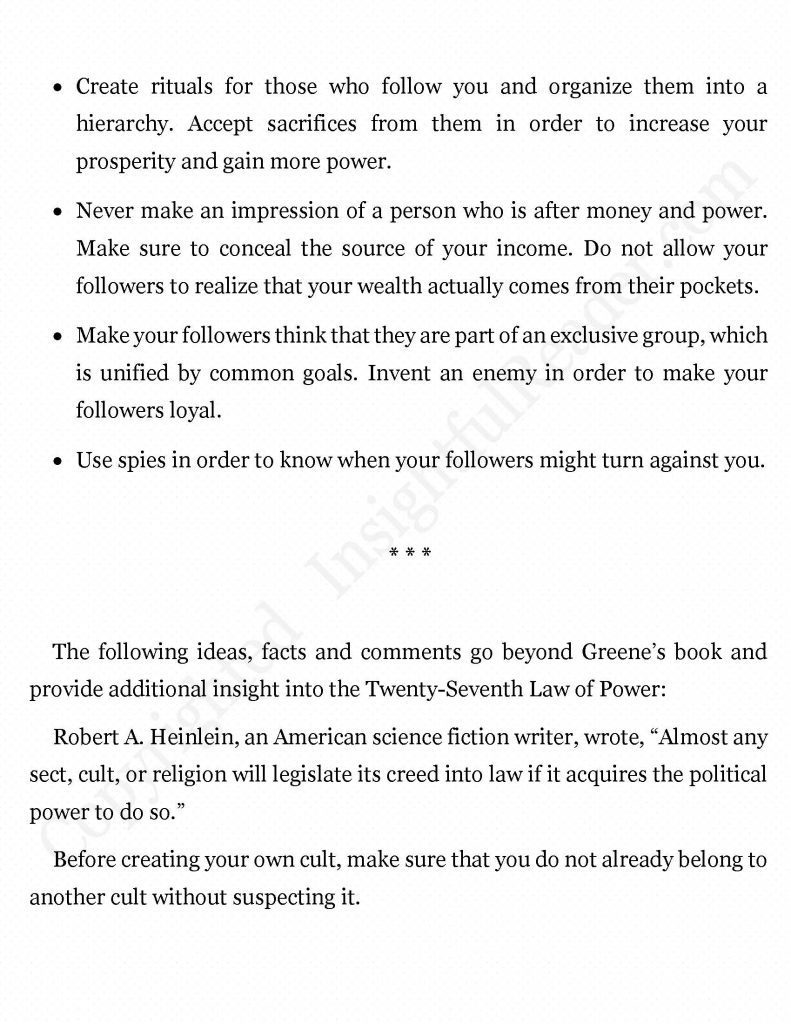

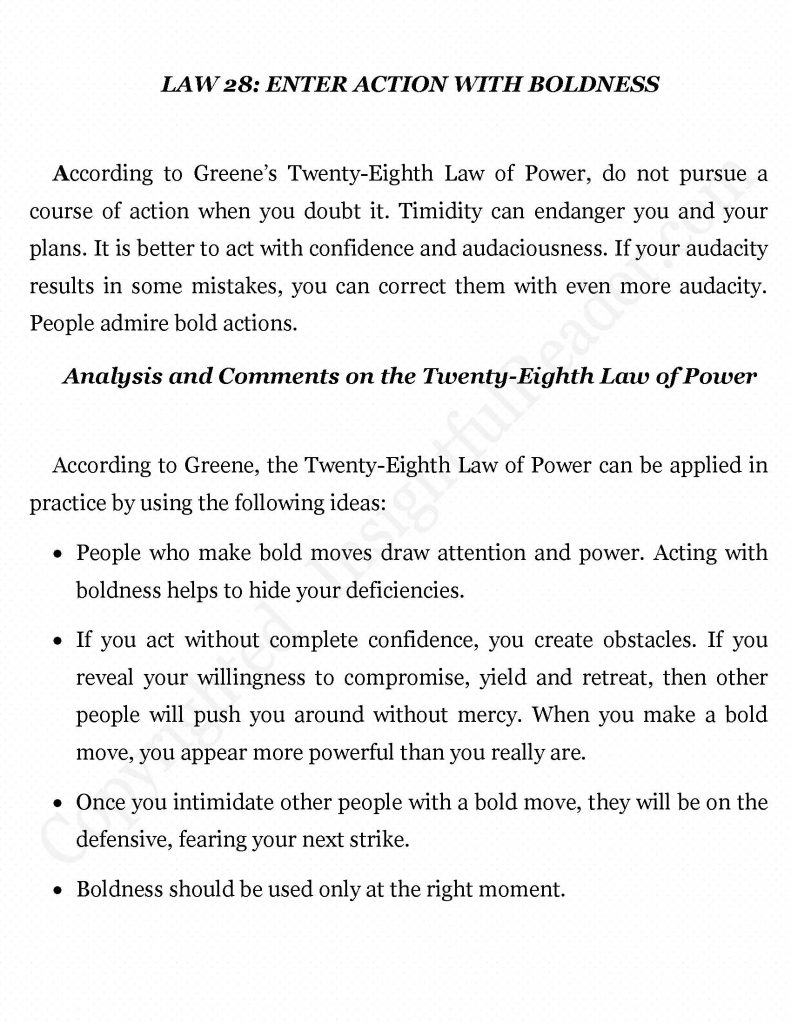

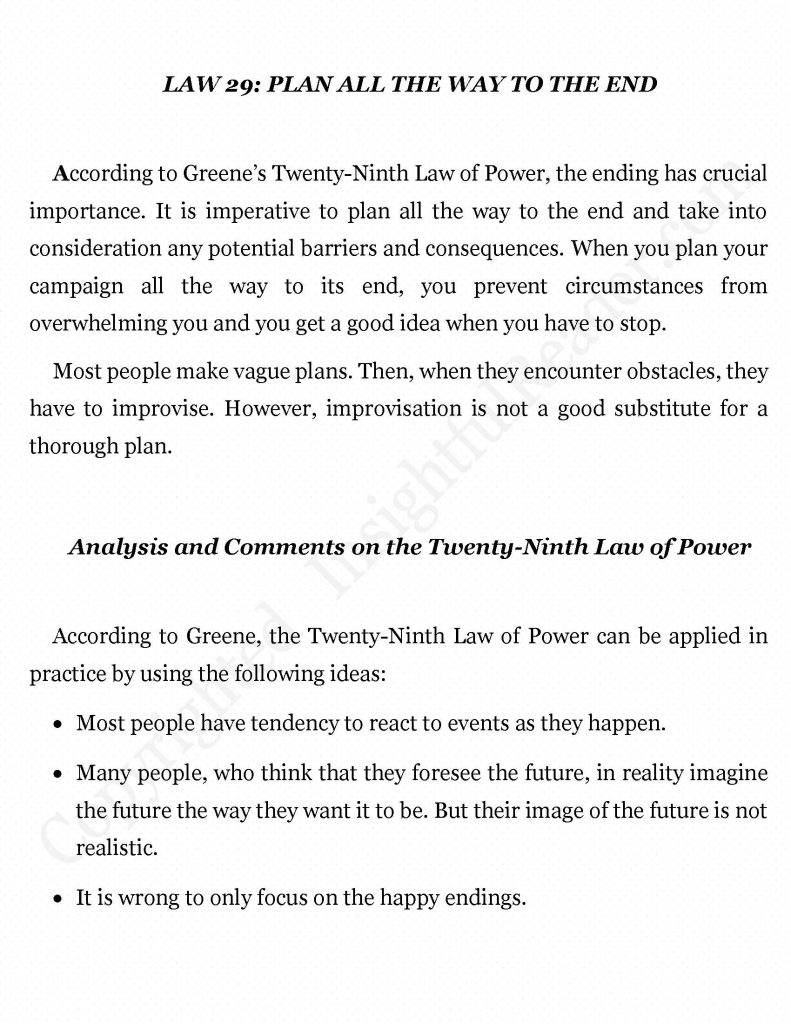


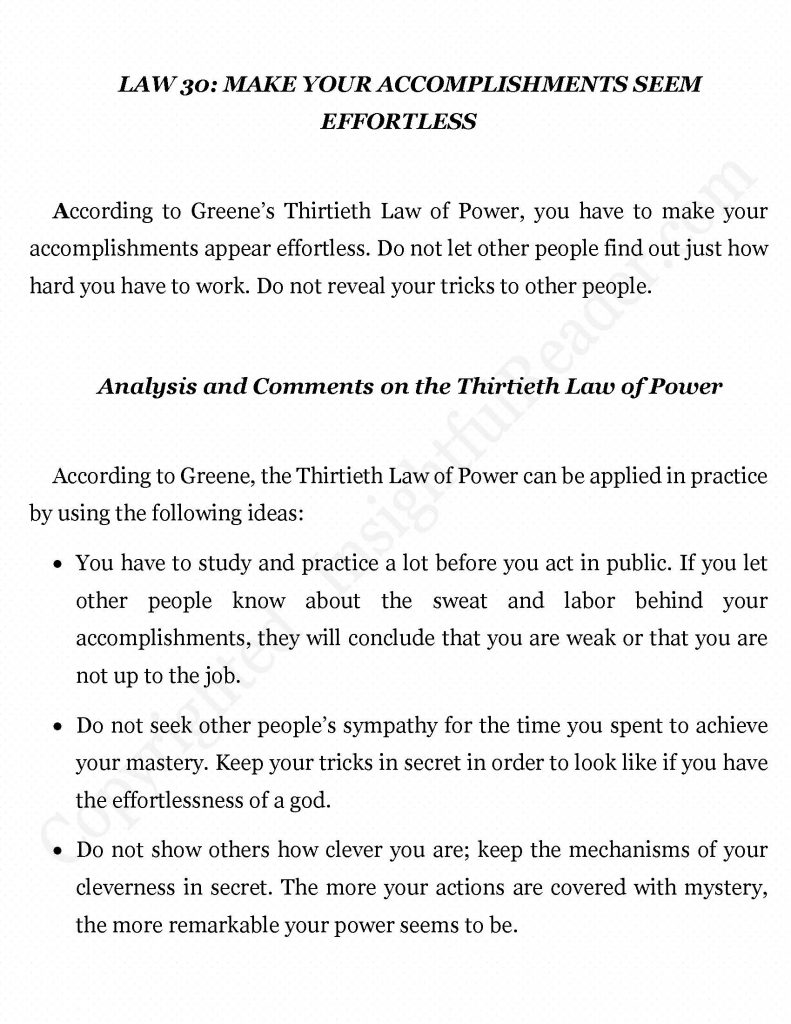
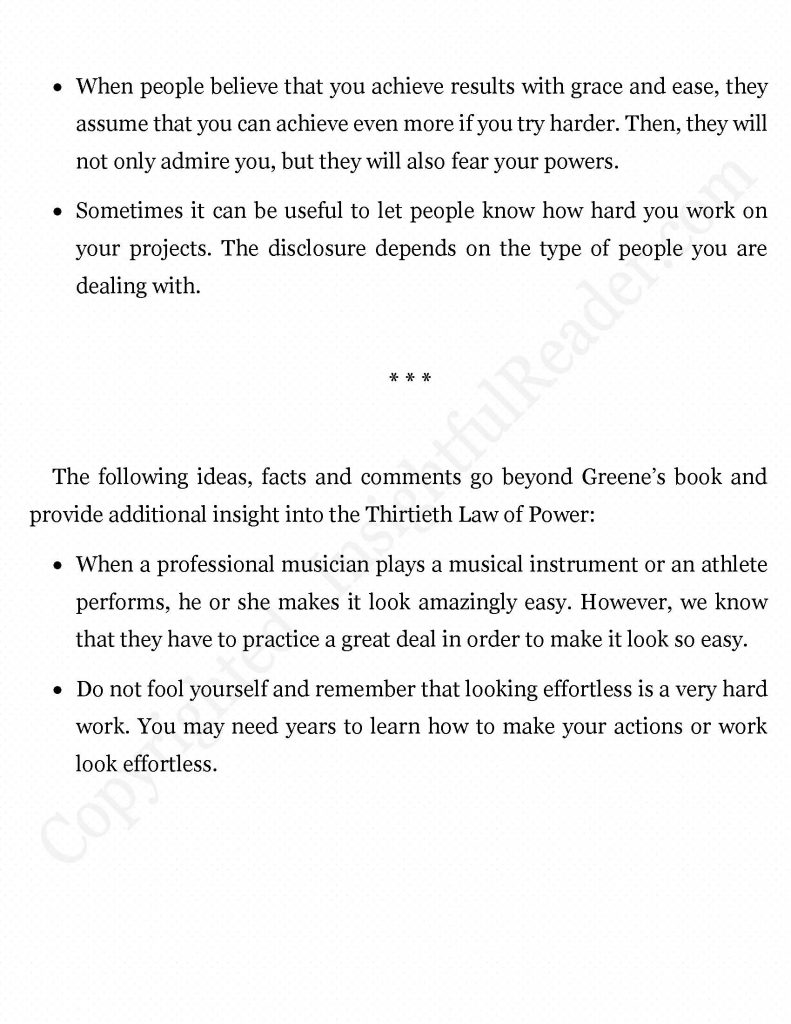
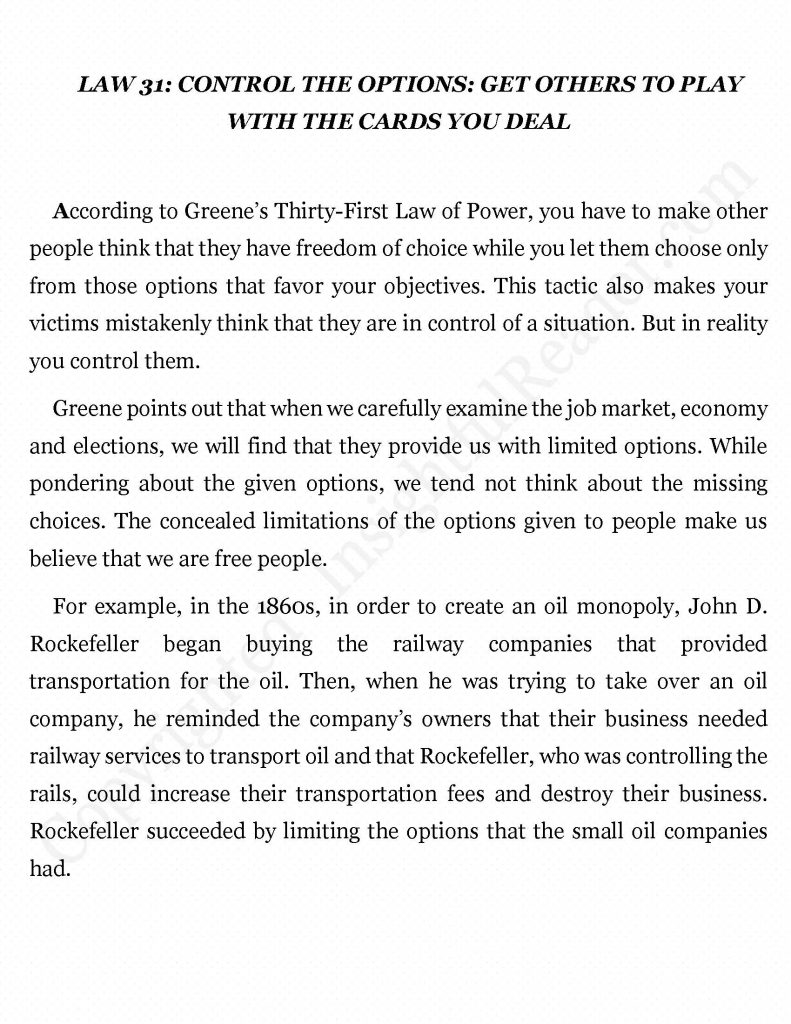
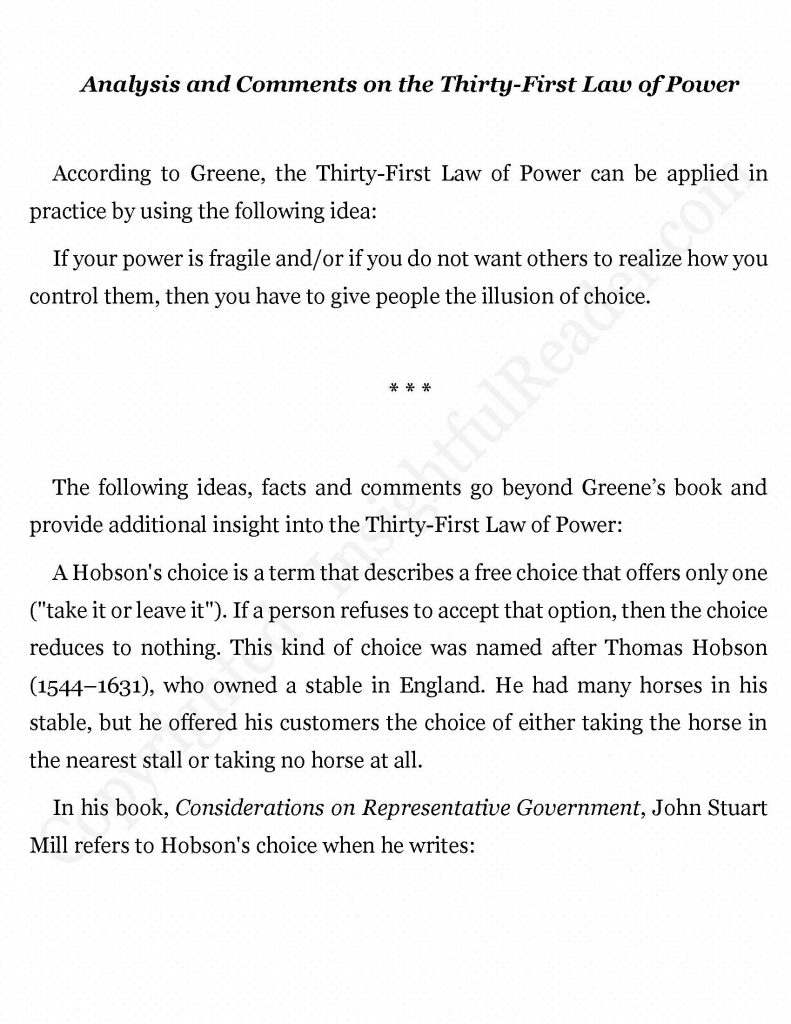
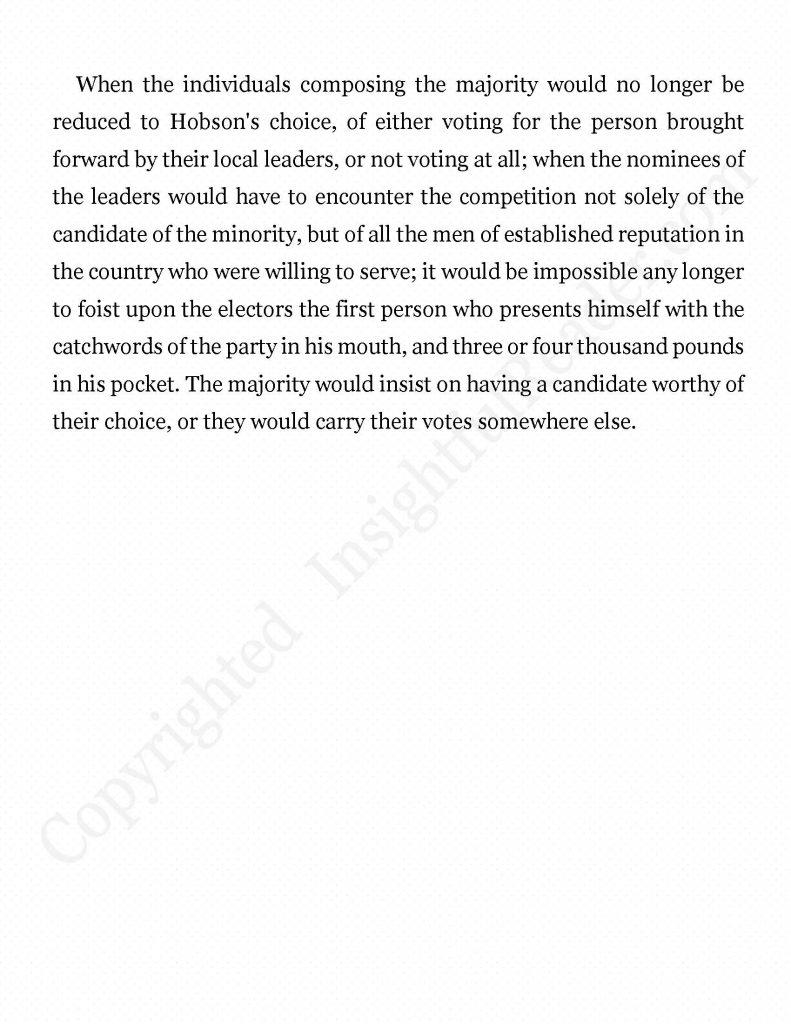
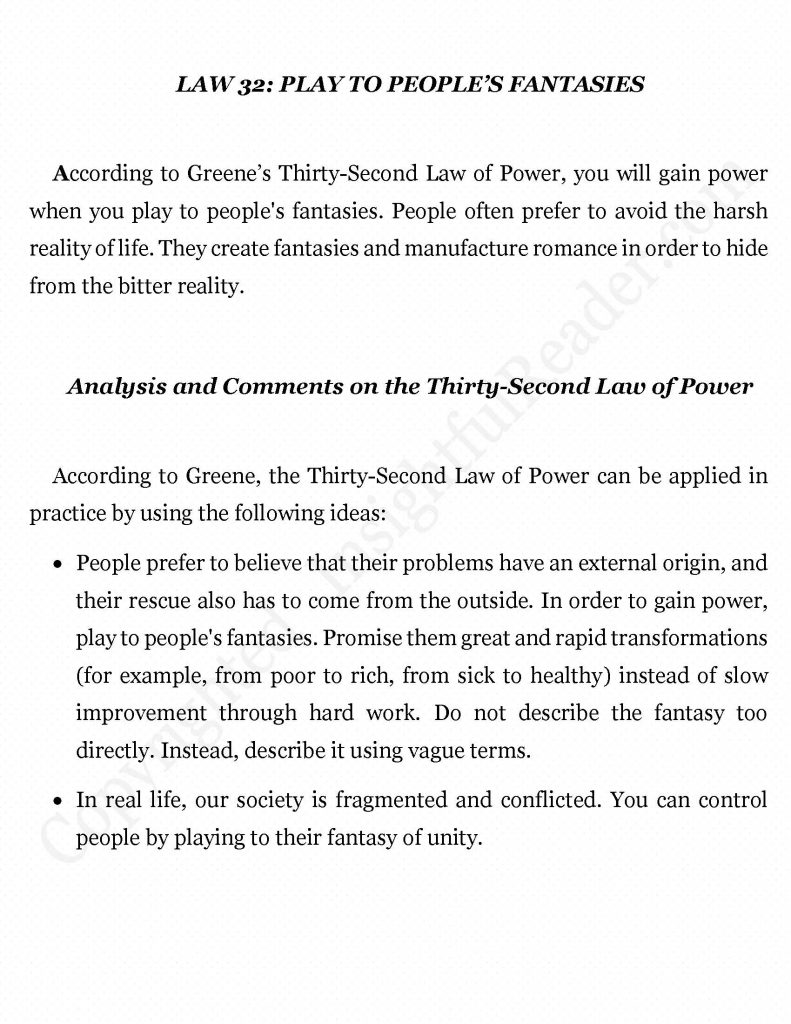

Go to Part I A Summary of Laws 33-40
Related content
Dead Wake by Eric Larson
Clinton Cash
Promoted links from around the web
Dead Wake by Eric Larson
Clinton Cash
